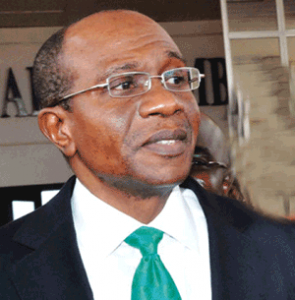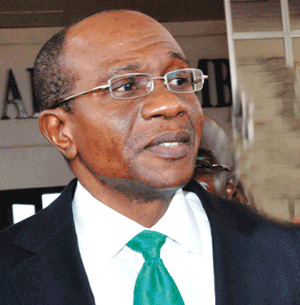Will Nigeria’s exit from the JP Morgan’s Emerging Market Government Bond Index (GBI-EM) affect the common man on the street?
How will the decision affect government and economic activities?

These are some of the questions TheNiche sought for answers from financial experts. According to the financial analysts who spoke apart from one another, exit from JP Morgan bond index may not materially affect government borrowings if such borrowings are completely domesticated.
But with fiscal consolidation by the President Muhammadu Buhari administration, the need for borrowing may not actually exist, as such, the Central Bank of Nigeria (CBN) can competently manage the economy despite JP Morgan.
That was the consensus of financial experts who urged government to call the bluff of the foreign investment bankers.
The United States-based global lender had recently announced that Nigeria would be phased out of its index over the next two months, saying that lack of transparency and a fully functional two-way foreign exchange (FX) market had resulted in some challenges for investors buying and selling in naira.
According to JP Morgan, Nigeria would be partially excluded from the index by end of this month and full ejection will be effected in October. Nigeria’s current weighting in the $200 billion index is 1.50 per cent.
In a swift reaction, the Federal Ministry of Finance (FMF), CBN, and the Debt Management Office (DMO) disagreed with J.P. Morgan, saying that Nigeria had taken appropriate measures to improve the market.
“We would like to strongly disagree with the premise and conclusions upon which the decision rests,” a joint press statement by the FMF, DMO and CBN read in part.
The Managing Director and Chief Executive Officer, Highcap Securities Limited, David Adonri, said the authorities can do without JP Morgan but warned that attractiveness of Nigerian financial instruments to foreign investors may be adversely affected, especially at the primary market as foreign investors may shy away.
CBN statutory mandate and demands of globalisation
In line with its mandate to “ensure monetary and price stability and promote a sound financial system in Nigeria,” the CBN along with sister agencies has issued economic and financial advice which it considers appropriate to guide government decisions.
CBN Act of 2007 charges the bank with the overall control and administration of the monetary and financial sector policies of the Federal Government.
Beyond issuance of legal tender currency, the CBN mandates include: ensure monetary and price stability; maintain external reserves to safeguard the international value of the legal tender currency; promote a sound financial system in Nigeria; and act as banker and provide economic and financial advice to the Federal Government.
In the face of JP Morgan’s threat, CBN has risen to the defence to ensure that the country’s national interest is not eroded by the virus of globalisation.
It is understood that no economy can exist without interacting with global players and outsiders whose actions and inaction affect policy decisions, but CBN insists that doing the bidding of JP Morgan will result in massive depreciation of the Naira and increased hardship for Nigerians.
Analysts advised that much as it is not in the interest of the country to shun foreign investors, government has to leverage on their funds to diversify the economy away from oil dependency as quickly as possible.
What JP Morgan offers
With total assets worth $2.6 trillion, world’s fifth largest bank by assets and the largest in the U.S., the banking and financial services holding company delivers strategic advice and solutions, including capital raising, risk management and trade finance to corporations, institutions and governments.
Serving the world’s largest institutional investors, JP Morgan says it supports the investment cycle with market-leading research, analytics, and execution and investor services.
“With over 170 years of experience and knowledge solving the complexities of significant wealth, we offer investments, liquidity and credit management, and tax and estate planning,” the bank boasted in its website.
In summary, JP Morgan’s mandate is to serve the worlds institutional investors and help build economies and communities. In this regard, Nigeria may have approached the lender so as to be an investment partner in building Africa’s largest economy in Gross Domestic Product terms.
It is bond index, which tracks around $183.8 billion to $200 assets under management serves as a shop where bonds of nations are displayed for investors/buyers.
In a lay man’s understanding, the bond is a debt instrument issued by a government, with a promise to pay periodic interest and to repay the face value on the maturity date. These bonds are usually in the country’s own currency, in Nigeria’s case, naira.
Why JP Morgan should be ignored
JP Morgan seems bent on serving the so called world’s institutional investors and helping them build their economies and investments.
Afrinvest West Africa, a Nigeria-based investment banking and research company, said in a note to investors: “We believe JP Morgan has its criteria for countries enlisted in its indices and also has the right to delist any country that falls short of its listing requirements.
“Nevertheless, we are also of the opinion that the apex bank has its exclusive right to ensure it achieves its primary responsibility of maintaining internal and external price stability.
“While we observed a knee-jerk reaction in the Nigerian capital market since the announcement, we expect this to stabilise in the medium to long term, as we await policy direction from the Buhari-led administration.”
Calling Morgan’s bluff, CBN Director, Financial Markets Department, Emmanuel Ukeje, said “the apex bank has advised deposit money banks to actually allow them to go because there are people who are also willing to come in. The fundamentals of the Nigerian economy are very, very good and people are willing to come into Nigeria and invest.”
He added that most of those being branded foreign investors (FIs), who JP Morgan referred to when it announced the removal of Nigeria from its Government Bond Index for Emerging Markets (GBI-EM), were mere traders.
He disclosed they constitute just a fraction of investors that are in Nigeria and that a lot of them had gone out before the 2015 election, because they never thought Nigeria would have a successful election.
He noted that the $2.8 billion worth of foreign holdings of Nigerian government bonds expected to exit the market, is significantly lower than a total of $8 billion that exited in September 2014 ahead of the 2015 general elections.
Ukeje said the CBN had been in contact with deposit money banks and that initial panic which greeted the news had died downed after they sat back and analysed the market. He said there was calm in the market and everything was returning to normalcy.
“We have seen some buying interest at the secondary market in spite of the move by JP Morgan to remove the country’s bond from its index,” a trader confirmed.
The initial reaction to the JP Morgan move led to an increase in yields across the board on Nigerian local debt, but later moderated after regulators introduced a new spread to stem volatility.
How exit affects Nigeria
According to Afrinvest, private sector investments would reduce due to high borrowing cost and this removal would further pressure the external reserves as these funds, which have been gradually exiting since 2014, would be expected to leave the financial system; although the effect might not be noticeable on interbank FX rate given the CBN’s managed peg of N199.00/UD$1.
“A further impact is expected to be felt as the exit of foreign investors is expected to increase government’s dependence on domestic investors, thereby narrowing the pool of funds in the bonds market.
“Ultimately, this may increase the risks of government borrowing crowding out private sector investment due to higher borrowing cost.”
As to how it will affect the common man on the street looking for daily bread, analysts explained that though there may be no direct impact on low income earners, long-term effect of anything that happens to the naira may reflect on household income and expenditure.




